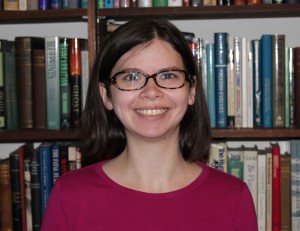Meet the Intern: Melissa Kerr

Please welcome the Appignani Humanist Legal Center’s intern for summer 2016, Melissa Kerr.
TheHumanist.com: What is your educational and work background?
Melissa Kerr: I graduated from the University of Colorado Boulder with a degree in French. I am currently a rising third-year law student at the George Washington University Law School. In previous summers, I helped my parents take care of my younger brother, who is severely autistic. He is now in a host home.
TheHumanist.com: How did you first learn about humanism?
Kerr: As a kid, I was really into learning about different religions. I read books like Karen Armstrong’s A History of God. One day, while I was poking around belief.net, I stumbled across the humanism section. I also saw the word “humanism” mentioned while reading an interview of Philip Pullman, the author of the His Dark Materials series, which I adored. Pullman identifies as a humanist.
TheHumanist.com: Did you grow up in a traditional religious faith? How did it impact you?
Kerr: My father is mostly Irish, and my mother is Italian, so I grew up Catholic. My mom and I would go to church when I was little, and I took catechism classes. Then we moved for two years to Washington State, and we just stopped going because the church there was boring. When we moved back to Colorado, we found that our priest was being prosecuted, so we just didn’t go back. I was never confirmed, something which I think my late grandmother was rather upset about. I never learned how to say a rosary. Honestly, I don’t really feel like the Church impacted me very much.
TheHumanist.com: What interested you most about working for the Appignani Humanist Legal Center?
Kerr: I very strongly believe in the separation of church and state. In my opinion, the Establishment Clause is one of the most important parts of our Constitution. You only have to look the historical persecution of those of different faiths to see why. Even today it’s such a problem. I was reading a book called Heirs to Forgotten Kingdoms, which is about certain religious minority groups in the Middle East, like the Mandaeans, the Druze, the Yazidis, and the Zoroastrians. There was a statistic that said that 76 percent of Pakistanis in 2010 thought someone who abandoned Islam deserved the death penalty. It should be said that this is not the official law in Pakistan, but that’s still pretty frightening. I’m not trying to specifically pick on Pakistani Muslims, as intolerance is a problem everywhere. It’s just so important for people to be able to say what they believe, to have freedom of conscience, as well as not to feel pressured into religious belief.
The book I’m currently reading, The Romanovs by Simon Sebag Montefiore, relates to this topic a bit as well. The Russian Orthodox Church not only legitimized tsarist rule, but also functioned almost as an arm of the government. This is part of what motivated the backlash against that church after the revolution.
TheHumanist.com: What book has influenced you the most?
Kerr: My favorite books are Things Fall Apart by Chinua Achebe and Guns, Germs, and Steel by Jared Diamond. One is fiction and the other is nonfiction, but they’re both on a certain level about how all humans are the same in the end.
TheHumanist.com: If you could have dinner with any three people in the world (living or dead), who would they be and why?
Kerr: I would pick Robert Sapolsky, who is a brilliant scientist at Stanford. I watch his lectures on human behavioral biology on YouTube, and they are absolutely fascinating. My second guest would either be George Carlin or Rachel Bloom, because they make me laugh. Finally, I would pick Kevin Richardson, whom I actually think is eccentric, but I would love to ask him all of the questions about spotted hyenas. They are my favorite animals. You know, Jane Goodall once said that if she hadn’t studied chimpanzees, she would have studied either hyenas or elephants.
